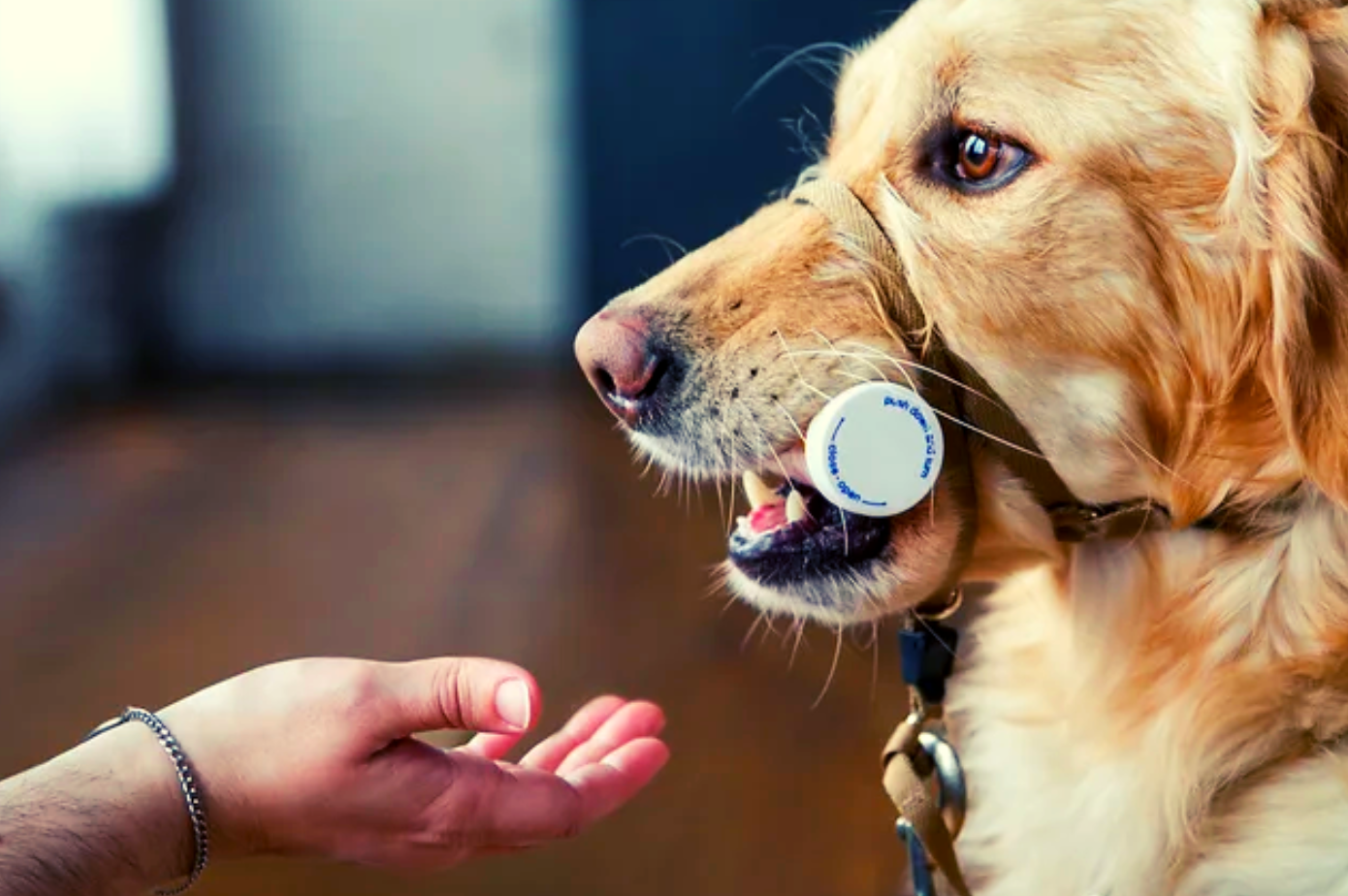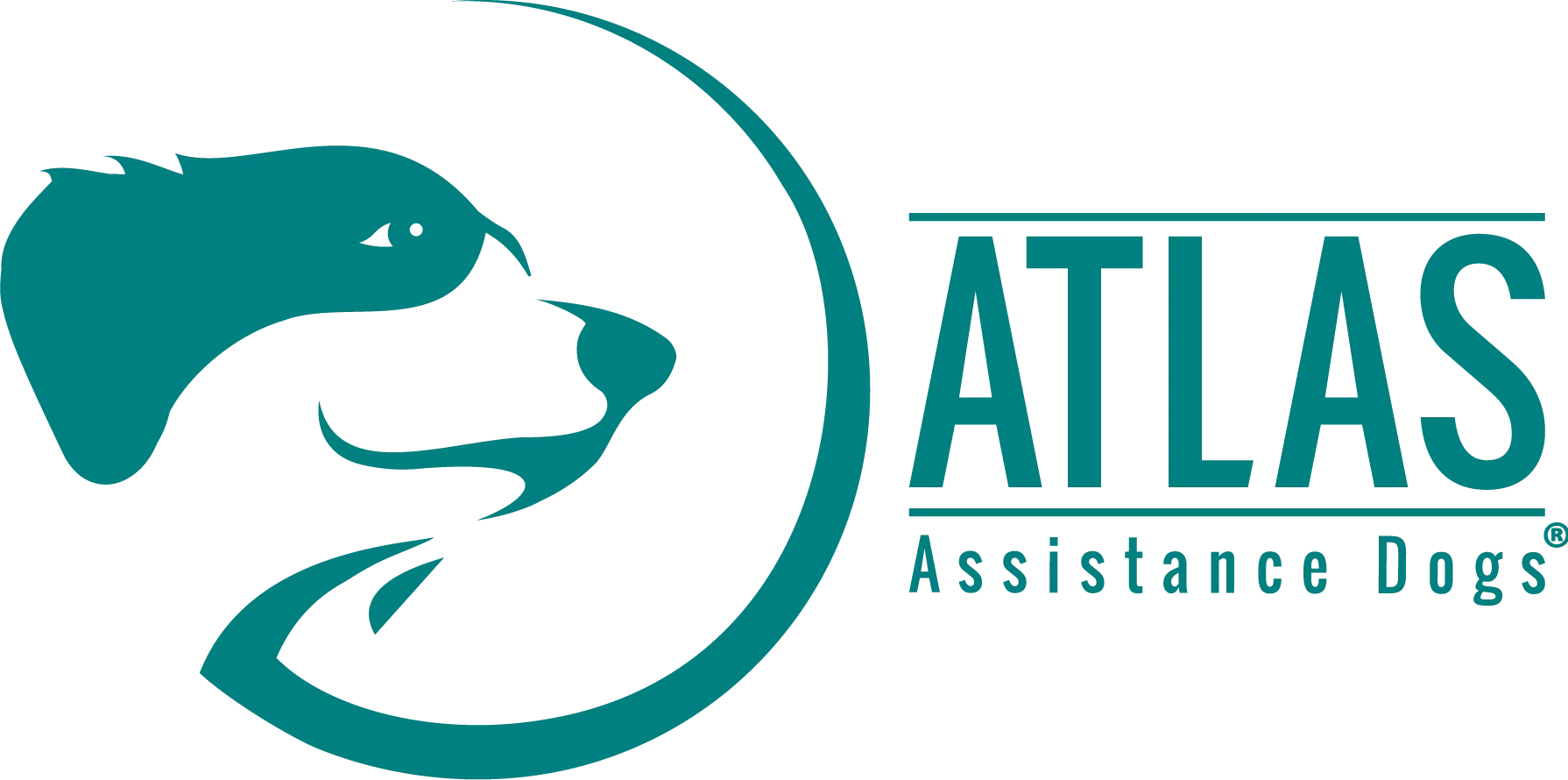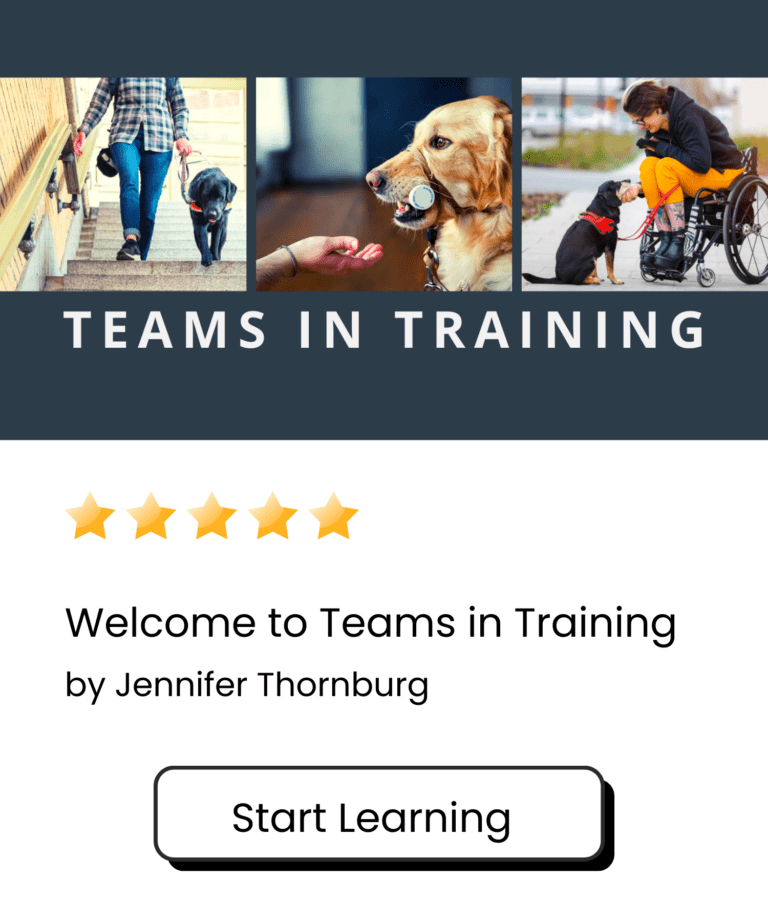Partners in Training
Service Dog Training and Support
Our Approach
Your Service Dog Journey Starts Here
Good Human Dog Training will guide you through every step of training your service dog, from understanding your rights and acquiring the right puppy or dog to teaching support tasks and preparing for public access.
As you begin the final phase of training, we may recommend Atlas Assistance Dogs’ nonprofit program to ensure this valuable resource is accessible to all qualified individuals. Our goal is to connect people with the best available support tailored to their specific needs.

Meet Atlas Assistance Dogs
Atlas Assistance Dogs is a nonprofit that certifies privately owned service dogs. Since 2020, Good Human Dog Training has partnered with Atlas Assistance Dogs as an Atlas-certified trainer and volunteer facilitator. We share their values and goals, and we’re passionate about their mission.
Atlas Assistance Dogs expands access to assistance dogs by supporting people with disabilities in training and certifying their own service dogs using positive, ethical training methods at an affordable cost.
Their Mission
How We Collaborate
Good Human Dog Training partners with Atlas Assistance Dogs, a nonprofit that certifies owner-trained service dogs. Jen Thornburg is a Certified Atlas Trainer and Lead Facilitator, supporting teams from early training through final certification.
Why We Recommend
How It Works
If we believe you and your dog show potential for success in the owner training program, we’ll recommend you to Atlas Assistance Dogs for further evaluation and support.
Good Human Dog Training will help you with all the puppy training, basic skills, service tasks, and public access skills. If accepted into the Atlas program, they will assist with the final stages of preparing you and your dog to become a service dog team in the world.
If you complete the program with your dog, your dog will still be legally yours, but certified through Atlas and wearing an Atlas Assistance Dog vest.
Evaluation
Puppy Training
Service Tasks
Public Access
Apply for Atlas
Program Support
Final Stages

After your dog reaches 14 months of age and has met the above training requirements, you can apply with Atlas to be paired with a Team Facilitator. Team Facilitators are experienced volunteers who help you with the final refinements of skills training, public access, and integrating your service dog into your life.
And, because Atlas utilizes volunteers, the cost of the final stages of training is less expensive than a for-profit service (like Good Human Dog Training. Hi.)
Our Commitment
At Good Human, we care deeply about supporting you and your dog on this journey.
We want to be transparent that not every team we work with will ultimately be accepted into the Atlas program.
As we move forward together, we will regularly assess whether service work remains a good fit for your dog’s temperament and development.
If we determine that your dog may not be suited for public access work, we can still offer meaningful support. Our Helper Dog program is designed to train dogs to assist their handlers at home and in dog-friendly environments, allowing you and your dog to continue growing and thriving as a team.
About Jen
Jen Thornburg (she/her) is a Certified Dog Behavior Consultant (CDBC), Certified Professional Dog Trainer (CPDT-KA), Karen Pryor Academy Certified Training Partner (KPA CTP), and a Certified Atlas Trainer and Lead Facilitator.
With over 20 years of experience, Jen helps dogs and their people build partnerships based on trust, science, and a little humor along the way.
Ready to Start?
Start with this brief intro course before we meet, so you know how the program works and what to expect. included in the course, you may schedule a Service Dog Program Review with Jen for personalized guidance. This intro course exists specifically to help you make an informed decision before taking on any commitments.


